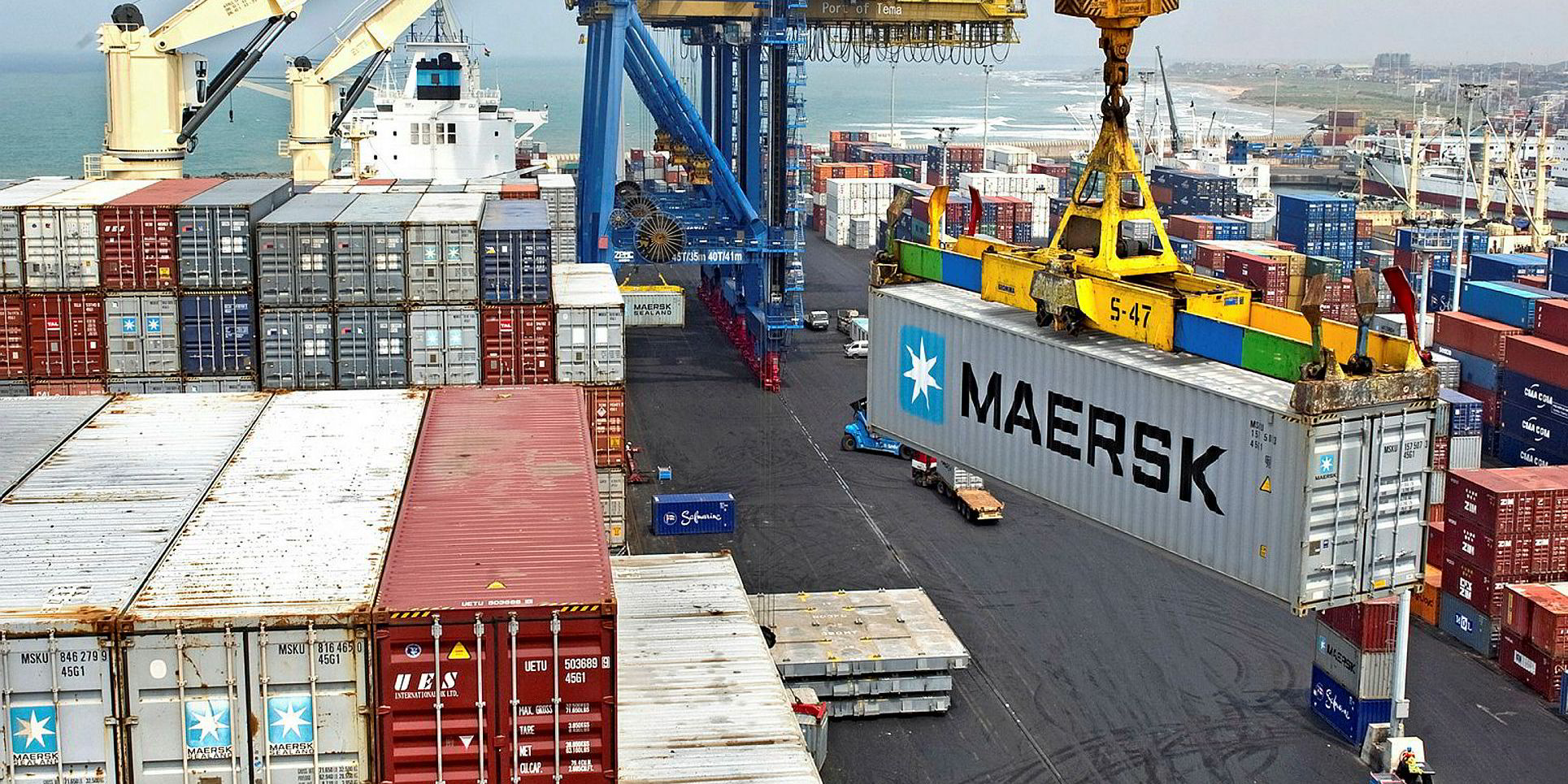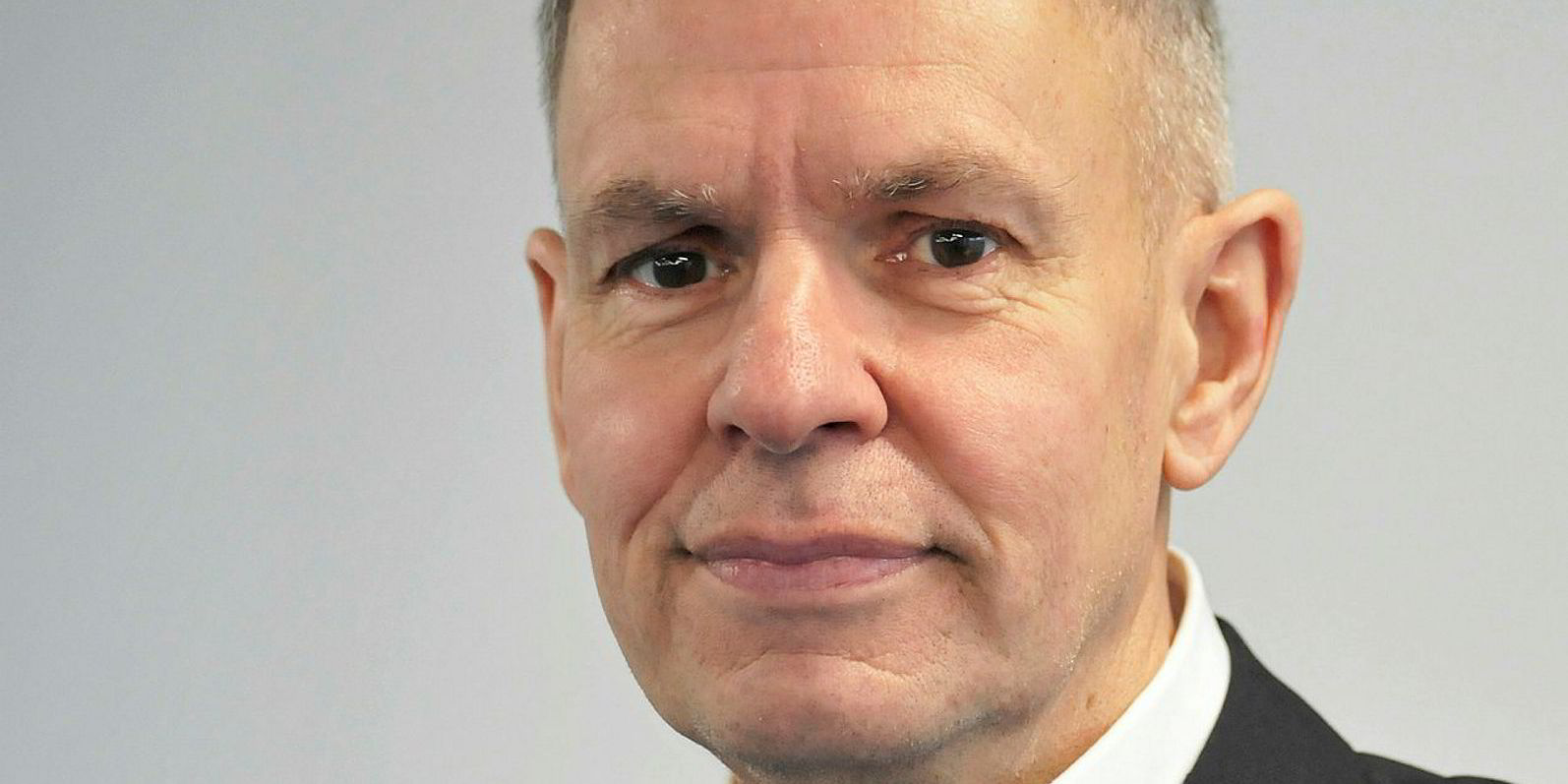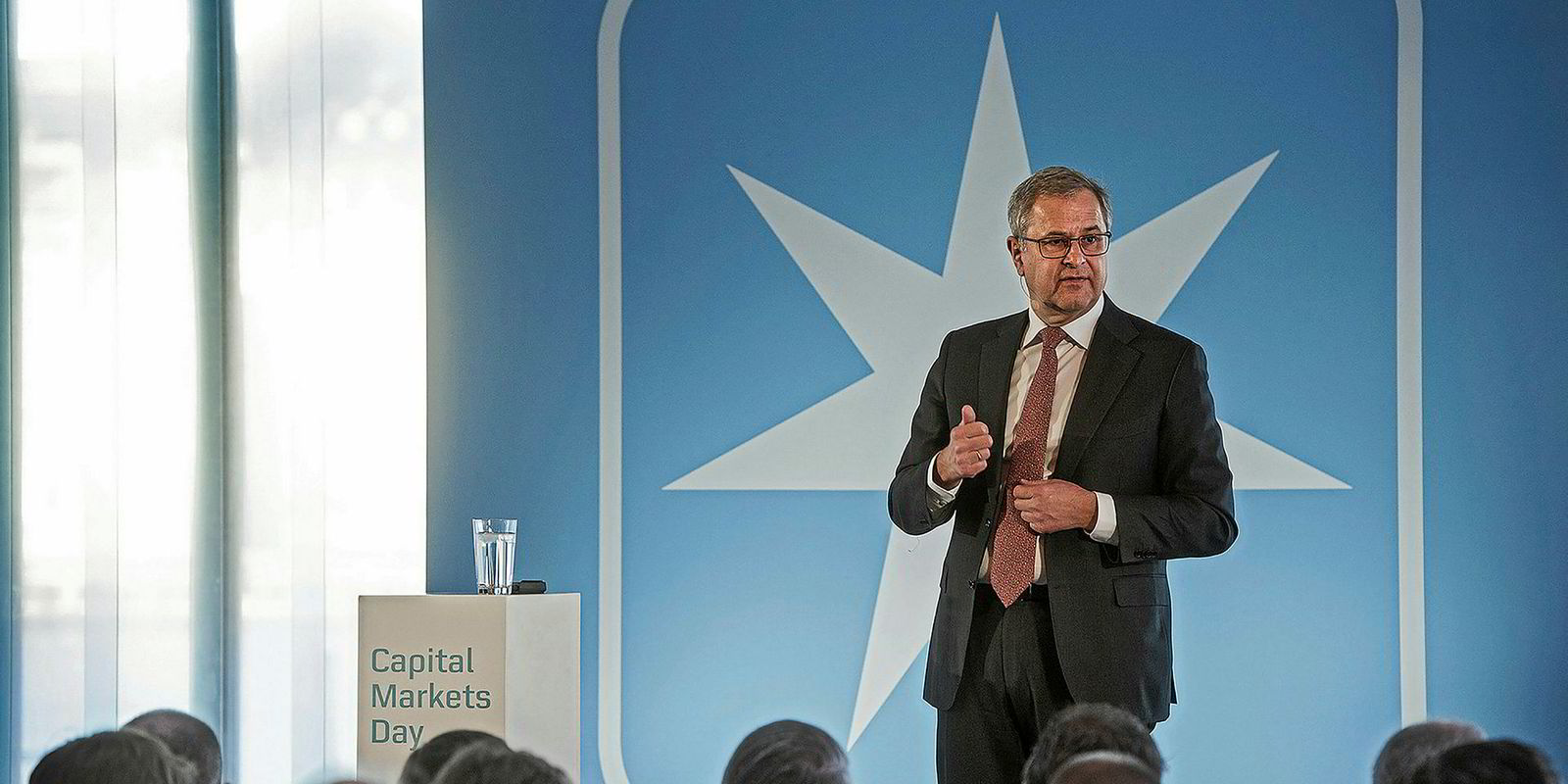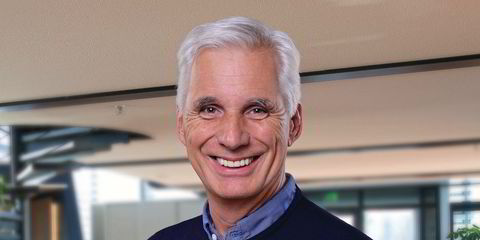It is tempting to argue that AP Moller-Maersk boss Soren Skou is in a similar position to Liam Fox, the UK politician spearheading Brexit. Skou is engaged in a dramatic restructuring of the Danish shipowner’s business to try to position it better for the 21st century.
That involves disposing of “peripheral” operations such as oil, banks and supermarkets and moving towards a new dawn of “container logistics”.
Skou has a vision of becoming a rival to those US-based giant consumer shippers, United Parcel Service (UPS) and FedEx, as TradeWinds reported last week.
Fox, the UK's international trade secretary, wants to position the country as a world leader in the 21st century. He thinks he can put the Great back into Britain by removing any connection with the European Union.
Under this vision, the UK would go back to its buccaneering days as a global free trader, perhaps drawing on the spirit of that mighty city-state and maritime hub, Singapore.
Given the fact that 60% of UK trade is currently undertaken with the EU, and that a hard Brexit would see trade barriers erected against Britain, that is a big ambition.
My analogy with Skou is unfair, because the Maersk man is not betting the whole barn on success in door-to-door logistics. He is not, for instance, selling the entire container shipping fleet, which would, in my view, be the closest thing to what Fox is planning.

The Skou plan looks good on paper. It certainly made sense for Maersk to dispose of its stakes in Dansk Supermarked and Danske Bank. And when the price of crude had collapsed from $118 per barrel to $30, it probably looked attractive to sell its oil business to Total for $7.5bn.
But the oil price has more than doubled since then and Maersk has lost a neat “hedge” against bunker costs and any slump in shipping revenues. Indeed, the rise in the price of fuel for Maersk containerships last year ate up most of the gains in freight rates.
Now there are more jitters about the future of the boxship sector and the Maersk share price is taking a battering. It is down 30% from its highs of the past year as investors begin to fret about what even Skou admits may be a “quite messy... multi-dimensional transformation”.
And what of Skou’s plans to become a global competitor to FedEx? These US parcel deliverers are very large: UPS has 500 owned and leased planes and 100,000 delivery vehicles to handle its 20 million shipments a day.
There are also challenges on the horizon for these companies in the shape of Big Tech.
Amazon, whose boss Jeff Bezos is now the richest man in the world, has just unveiled a "Shipping with Amazon" strategy. He wants to use the company's expertise in digital technology to create efficiencies and savings in the wider and larger supply chain.
None of this is an argument against Skou trying to build Maersk into a major logistics brand, it is just pointing out the scale of the challenge.
Maersk has enormous success and history based on highly successful oceangoing ship operations that his potential new rivals do not. It even increased its stake in box shipping by spending $4.3bn on Germany’s Hamburg Sud last year.
The Maersk share price is taking a battering. It is down 30% from its highs of the past year as investors begin to fret about what even Skou admits may be a 'quite messy... multi-dimensional transformation'
But then the tech companies in particular have made their money through intellectual property while holding a minimum of physical assets.
Did you notice that the internet messaging service Snapchat had a value of $30bn and only 2,000 staff? That is the same value as Maersk, which in 2016 had almost 90,000 staff and more than 600 ships, as well as terminals and other assets.
Skou understands the importance of the digital side and says he would like to put customer service on par with online banking ease and efficiency. At the same time, he rightly wants to replace the cyclicality of traditional shipping revenues with consistently strong returns.
His goal is as good as his acceptance that Maersk will have to shrink to grow. After all, no shareholder will argue with the notion that profits come before revenue.
But can Skou pull it off? Well, it is said that fortune favours the brave.





